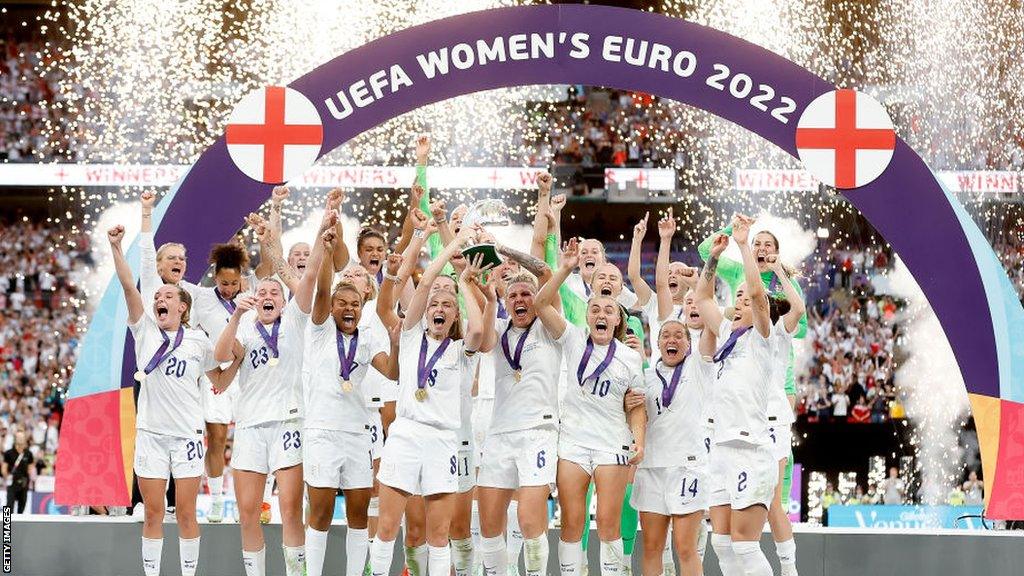Women's World Cup: How much further can the game go?
- Published
- comments
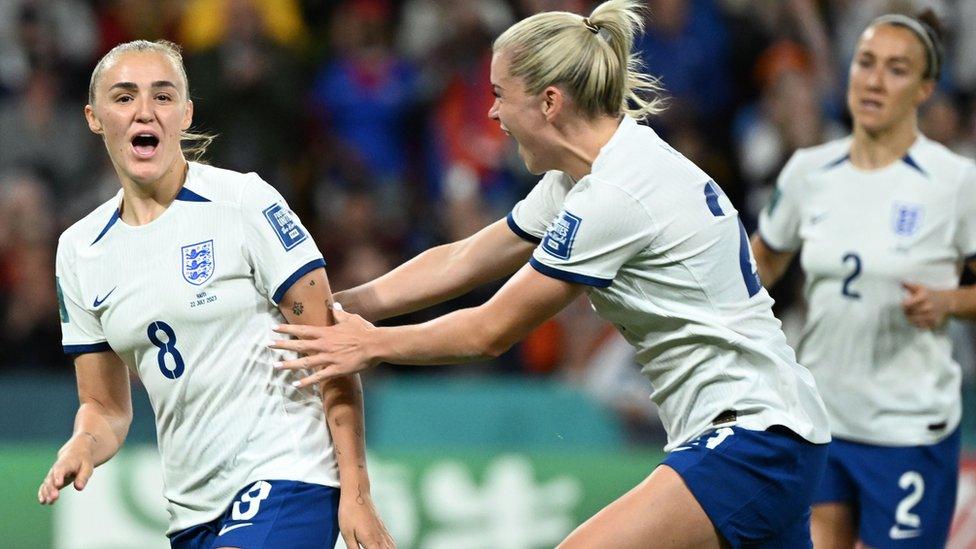
Georgia Stanway's dramatic penalty sealed England's victory in their opening World Cup game against Haiti
If you enjoyed watching the Fifa Women's World Cup, you might be used to seeing full stadiums, big brand names on posters and plenty of big-name players on the field.
But it hasn't always been this way.
Even in the past 10 years, the women's game has become more popular, more of a money-making business and produced more superstar players.
England's win at Euros 2022 and making their first World Cup final in 2023 has helped change attitudes to women's football.
England defender Alex Greenwood is part of England's 2023 World Cup squad and said the Lioness' win at the Euros 2022 had played a big role in changing opportunities for future generations.
She told Newsround: "Change is already happening. We made that change last summer for more opportunities in schools, and I think that's where it starts, from a young age."
"The most important thing for us as a squad is for young girls and boys to have opportunity, and I think we're getting there," she added.
What needs to be done to grow women's football?
Ex-England goalkeeper Karen Bardsley said the Lionesses' were "perfect role models" for children because "they fight for what they believe in".
They took home the title of European champions, and then scored a political victory too. The prime minister promised girls and boys would have equal access to all sports in school, after he received an open letter from the Lionesses squad asking for change.
But many people within the football world say there is a long way to go before it can be on an equal footing with the men's game.
So before we look ahead, let's look back at why women's football is a few steps behind.
The women's football ban
Women's football: 100 years since ban
Women have been playing football for well over 100 years. The first recorded match in England was in 1895 when the British Ladies Football Club North side beat the South 7-1.
But the game became really popular during World War One (from 1914-1918) when women took over the factory jobs that men had left behind when going to fight in the conflicts.
The women played during their lunch breaks and represented their factories.
Women's football carried on growing in popularity after the war ended 1918. In 1920, one club, Dick Kerr Ladies, sold more than 53,000 tickets and many fans were left waiting outside the ground.
However, in 1921, the Football Association in England banned women's football.
"The game of football is quite unsuitable for females and ought not to be encouraged," was the reason given.
The big comeback
Almost 50 years later, the Women's Football Association formed in 1969 with 44 member clubs.
In 1971 the FA finally lifted the ban allowing women to play on its member pitches and use its referees.
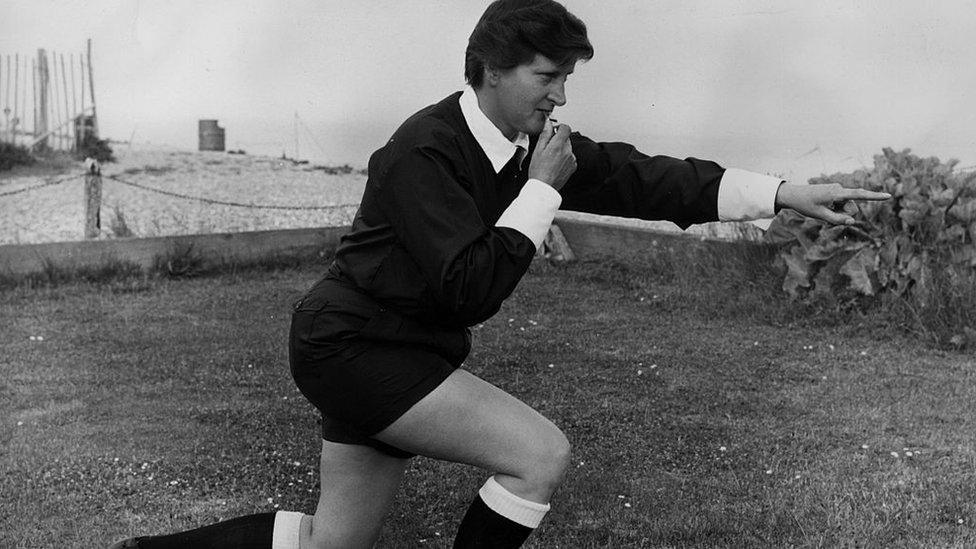
Terry Clark became the first woman to qualify as a referee after the FA allowed women back in the game in 1971
It led to a steady growth of the game, but many women's teams still faced difficulty gaining financial support and access to suitable pitches.
No female footballers were paid to play until much later. In fact, it took until 2018 for a fully professional women's league to be formed.
This is what we now know as the Women's Super League.
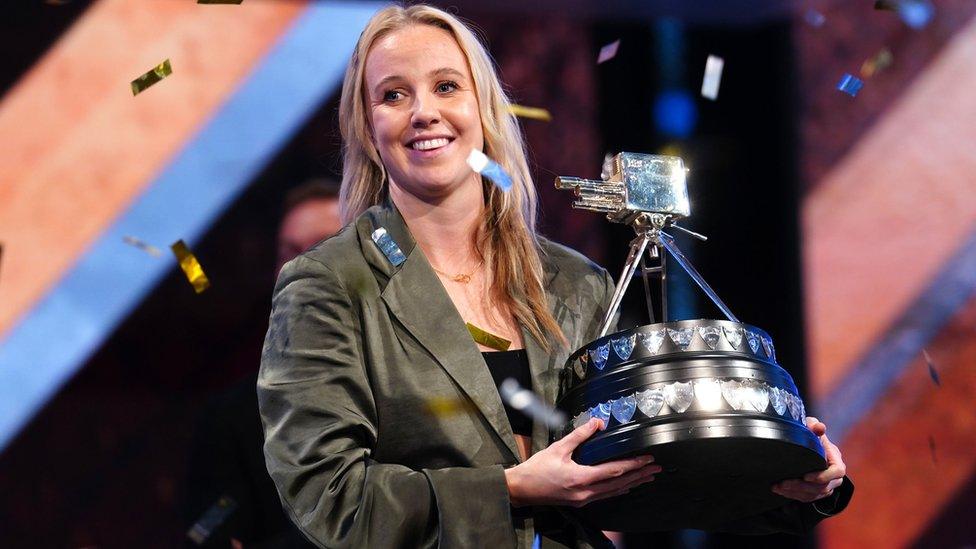
Beth Mead was crowned BBC Sports Personality of the Year 2022 following the Lionesses' spectacular victory in the Euros
In 2021, Arsenal and England striker Beth Mead told Newsround that when she was growing up she was told football was only for boys.
She says she thinks the ban had a lot to do with it.
"We're 50 years behind now," she said, "but the women's game is moving in the right direction, and we are getting the TV coverage, social media, getting more people to games, more people invested in the games."
Of course, a year later Beth played a huge role in the Lionesses' victory in the European championships.
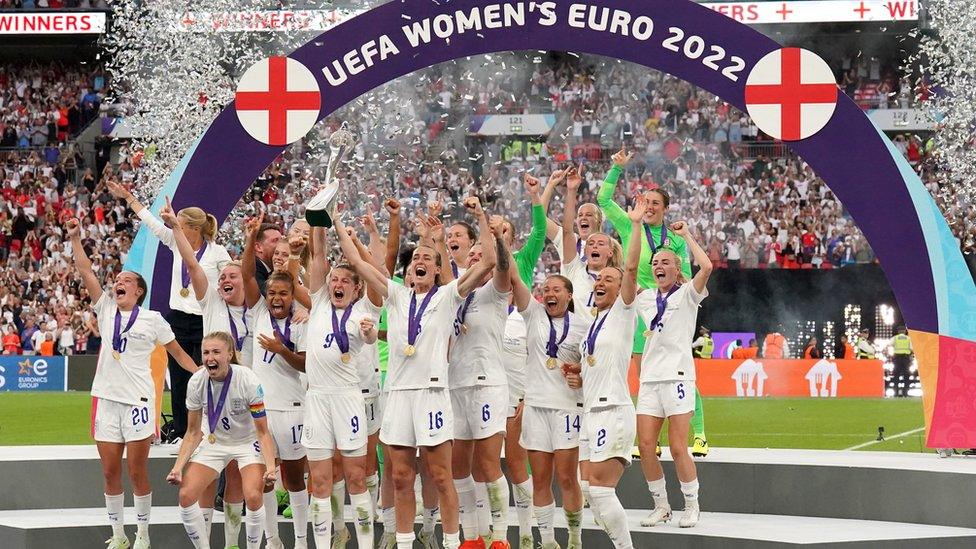
England women went one better than their male counterparts, winning the European Championships 2022 at Wembley Stadium
That win has proved to be a huge moment for women's football across the country, with participation at all levels increasing, financial support growing, and more people attending WSL games.
Not only that, but the women's game is expected to become a huge money-making business, with the TV rights to the games in 2033 estimated to be worth seven times the current figure.
So where can football go from here?
As any footballer will tell you, there's still a huge gap between the men's and women's earnings.
The prize money for the champions at the 2023 Fifa Women's World Cup was about £3.7m, whereas for the 2022 Fifa men's World Cup in Qatar it was £32.7m - almost 10 times more.
An average wage for a top WSL player in England is about £47,000 per year, according to BBC analysis in 2022.
But salaries in the Premier League are a lot more.
It was reported that in 2022 the highest paid male players were earning somewhere between £200,000 and £400,000 per WEEK.
Playing for England, the men and women earn the same in match fees - about £2,000 per game, which has been the case since 2020.
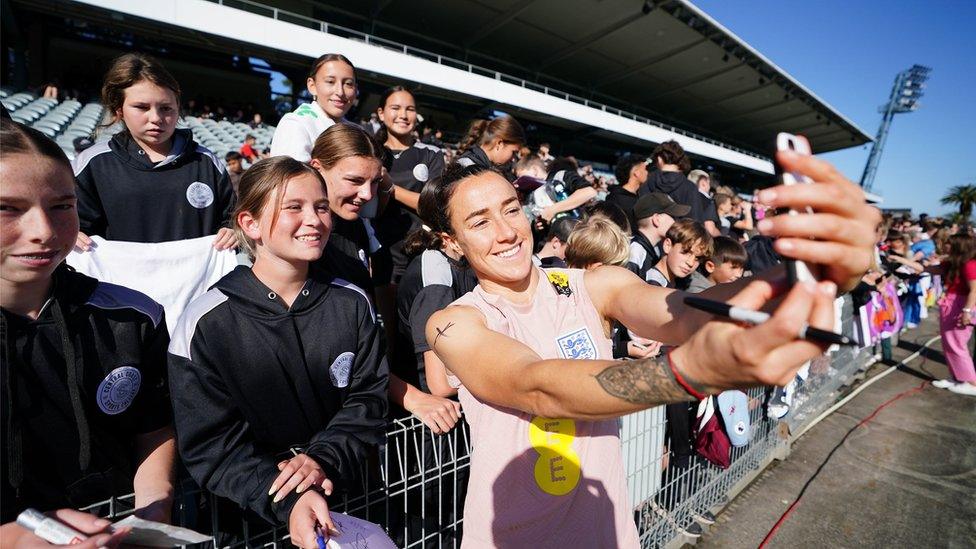
Fans now come to watch England women's team train in the hopes of getting an autograph
The next generation of footballers
Although there remains a gap when it comes to the money in women's and men's football, there's a lot to be celebrated in terms of the progress towards gender equality in the sport.
Goalkeeper Karen Bardsley played for England from 2005 until 2022. She told Newsround the Lionesses were the "perfect role models" for women's sport as they "fight for what they believe in and the future of the game".
She said it was all about giving opportunities to everyone to play football, which will help change "the culture" of women's sport in England.
Although England lost by one goal to Spain in the Women's World Cup after a tense 90 minutes, England supporters have expressed pride for their team who lifted the European Championships trophy in 2022.
The Lionesses have already made history by becoming the first England women's national team to reach a World Cup final.
Prime Minister Rishi Sunak said: "It wasn't to be, but you've already secured your legacy as game-changers."
- Published16 February 2023
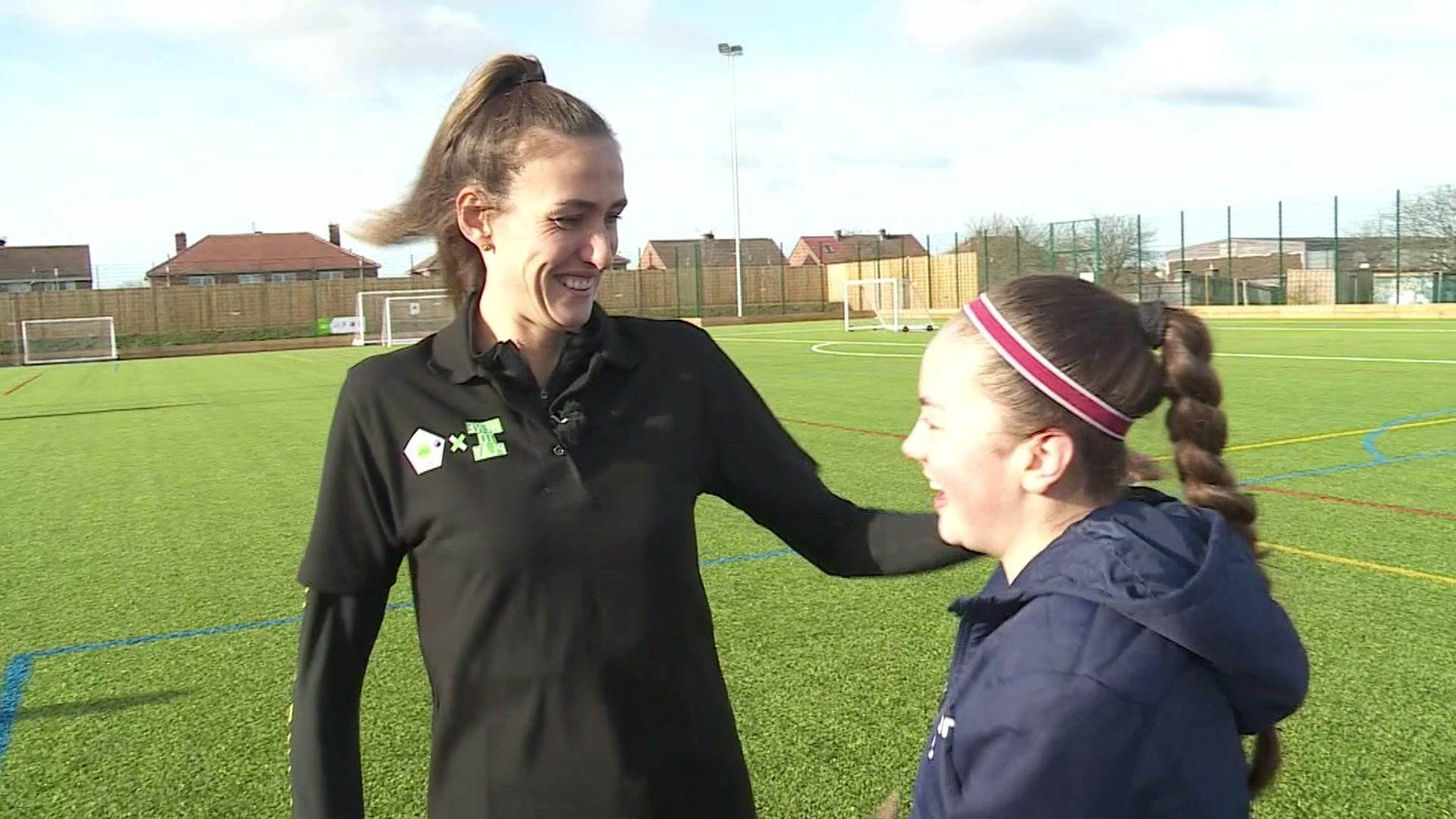
- Published31 May 2023
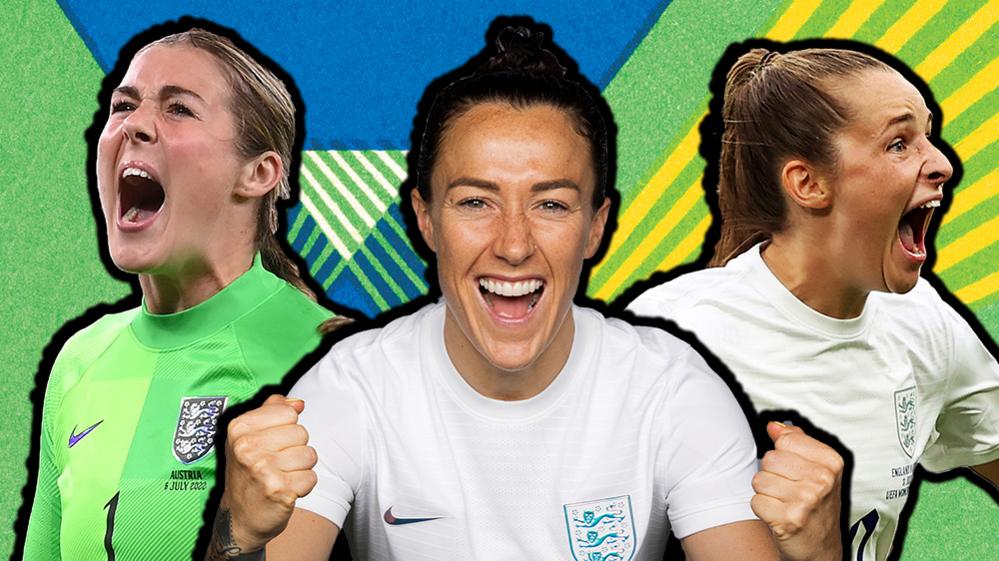
- Published8 March 2023
